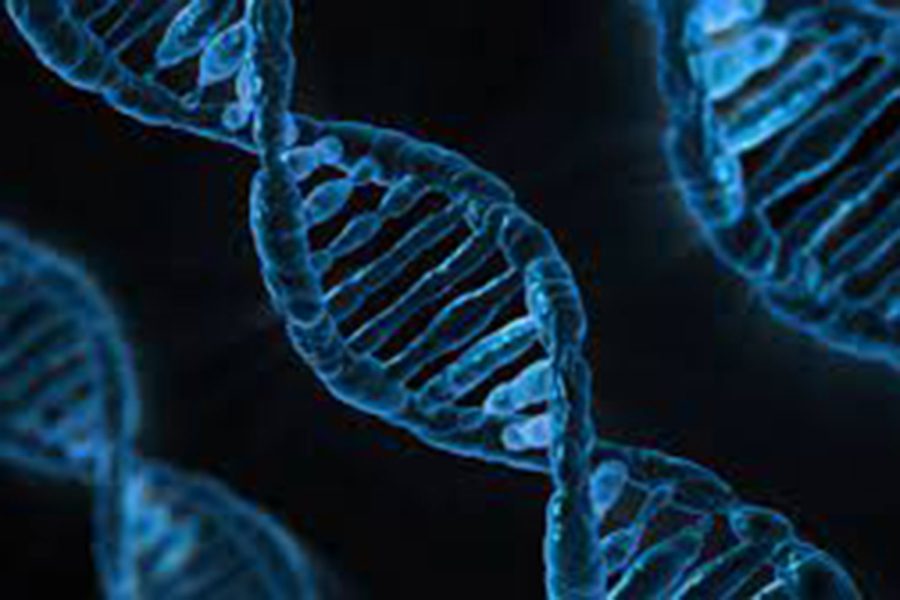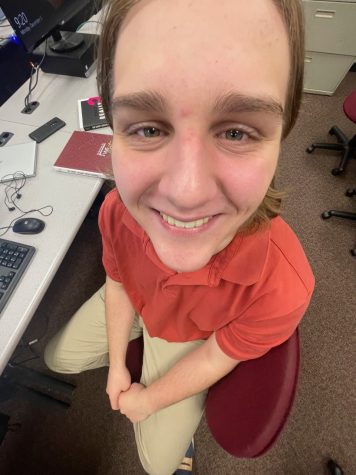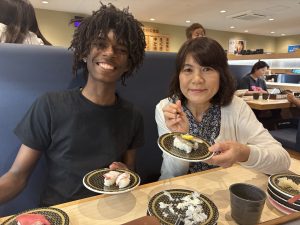Solving world hunger may just come down to genetics
Use of genetic modification will improve the world drastically.
March 25, 2022
Genetically modified organism (GMO) foods are the best foods available, and the shunning of genetic modification is holding us back from permanently solving tons of problems, especially hunger and famine. The reason why so few purchase GMO is because of all the fear, uncertainty, and doubt surrounding it. It’s a big scary acronym like LSD or WMD, and people don’t want to ingest something they don’t quite understand. If people started supporting GMO products, we could eventually live in a culinary utopia in which we have enough inexpensive food for everyone, and then some. We might even be able to fix even greater things than food with this tech, but people like the word “organic” printed on their groceries.
GMO crops alone can save the world in terms of food and reduce climate change. We can take any crop and make it perfect: It could grow faster, need less water, produce a higher yield, more reliably grow out of each seed, be more resilient to pests and disease, and have it grow in nearly any climate regardless of sun, soil, heat, or cold. The use of fertilizer, synthetic and organic, causes tons of nitrogen to go into the soil, which farmers get rid of through the nitrification-denitrification process. This produces Nitrous Oxide, a greenhouse gas 310 times more powerful than CO2, and is the largest cause of CO2 from farms. GMO crops won’t need fertilizer, and therefore won’t have so much CO2 produced from growing them. If we do this with enough different crops, we could have farms producing so much food for such little money in so many places that no one would go hungry. Heck, I could grow all the food I need in a planting bed in my backyard if GMO seeds were consumer products.
GMOs aren’t just for plants. We can apply what we’ve learned from plant modification to animals. We all know the horrors of the meat industry: animals locked in cages, inches away from each other, spending all day getting fat only to be slaughtered for our consumption. Life is undesirable for these creatures. We could design animals that don’t feel pain, that aren’t suffering, and don’t fear death. Even if we don’t care about how a couple of birds feel before we eat them, the effects of the meat industry hurts us all. Livestock is the second largest cause of CO2 from the farming industry right after soil management, and we could make animals more efficient, producing less of the gas. The animals could also eat less, produce more meat, produce cleaner meat without diseases, tastier meat, healthier meat, and so on. Like crops, we would have better, cheaper, and more plentiful meat.
Finally, we can genetically modify human beings. While this initially sounds like something out of a sci-fi horror movie, the benefits of protecting our descendants from the minor genetic deformities and diseases we all carry is overwhelming. We could delete family history of diseases, remove gross genetic disorders, and maybe even solve Down Syndrome. Not only could we fix the human genetic structure, we can also give genetically modified people greater abilities. Humanity can become stronger, faster, smarter, lighter, and better in nearly every way, and that’s without making as little large-scale modification as adding an extra finger.It’s hard to see all the ways genetic modification can improve humanity since the technology to edit genes the way we do is still relatively new and rapidly improving, but if we actively develop this field, we could grow into a species where Albert Einstein would look dumb as a rock comparatively. The only question we have to answer is “how far should we go? Should we leave our genes alone and not rock the boat, or should we push ourselves beyond the limits installed in us?” I don’t think anyone knows for sure, but the potential for greatness is blindingly bright.
However, it’s important not to be blinded by that light, at least not yet. Just as there is great support for GMOs, there’s also great resistance. GMOs so far have not made many giant leaps and bounds in creating super-foods, super-animals, or super-humans. As a species, we are still learning the alphabet of genetics. We are rapidly learning and improving our techniques, sure, but to attempt what I propose we would be painting the Mona Lisa with a super soaker. Getting ahead of ourselves could be killing ourselves. So far our GMO experimentation has side effects, like engineered cattle without horns also being resistant to antibiotics. In addition, companies creating GMO products are pressuring third world countries to buy their seeds, regardless of the peoples’ resistance to it. Finally, GMO products are underwhelming, as many of the projects involving them keep failing, such as pests evolving to eat pest-resistant crops, or GMO seeds producing lower-quality crops than regular ones, or drought resistant seeds still not being drought resistant enough, and so on. As far as I’m concerned, it doesn’t matter how many failed experiments or terrible side effects we have. In fact, I like seeing failures because of how much we can learn about them. That being said, I would rather fail with plants that feel no pain than fail with animals that do. The tools to edit genes are still very, very, very new, and we have yet to learn how to use them well. Imagine a kindergartener playing the piano without a teacher. He’s going to be horrible, and continue to be horrible at it for a while. Over time, he’ll figure out what keys make what sounds, how sheet music correlates with sound, and what combinations of keypresses lead to something that sounds good. We are the same way with GMOs. Sure, we suck. But we’re far better than we once were, and eventually we’ll stop sucking entirely. As far as companies being corrupt goes, that’s just going to happen, GMO or not. The only real way to stop them is not from shunning the field in which they work, but to shun those specific companies and buy from their competitors. If Kleenex comes out saying that they make their tissues with child labor, and if you care about not supporting such a business, you switch to Puffs instead. What you don’t do is throw your hands up and say “Screw tissues, I’ll just use my fingers, like I did since I was five!” Next time you’re buying groceries, don’t buy food just because it says “organic” on the label, buy the food that will support the research that will drive humanity forward. Don’t stick your fingers up your schnozz to pull mucus out, sanitarily blow it.








